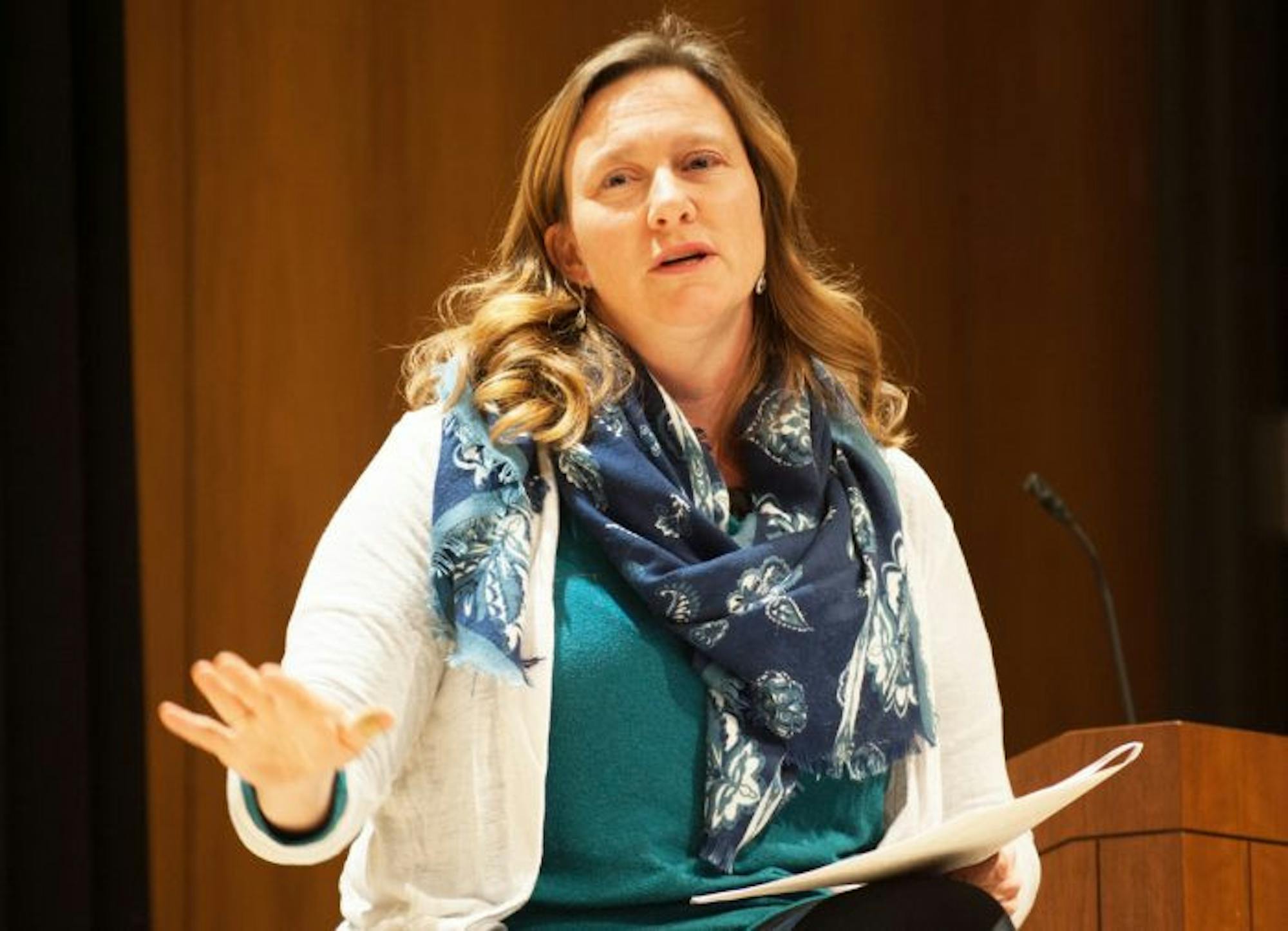Professor Maria McKenna, an education and Africana studies professor at Notre Dame, delivered the fourth Sorin Scholars lecture this academic year Tuesday evening. Her talk, titled “(In)congruence in Life and Learning,” gave advice to college students about success in higher education and how to find opportunities to engage in research that is fulfilling and interesting for each individual person.
McKenna began her talk by suggesting that balance — which McKenna described as “congruence” — is something that is often difficult to achieve, especially in education.
“American education was designed with a factory model in mind, with a limited set of ideas about what the purpose and outcomes of education should be, and who benefits and who doesn’t,” she said.
However, a little bit of incongruence is normal on the way to pursuing passions in college and finding one‘s way, McKenna said, sharing the story of a student who, after much deliberation, changed her major.
“Be brave, especially in the face of incongruence,” she said. “When things that you don’t understand come flying at your face in classes, do not run away from that class. Jump right back into it.”
McKenna also mentioned other incongruences that college students face on a regular basis — for example, the tension between professors’ stringent attendance policies which can become an issue when students are ill and the pressure for students to take care of themselves. Another incongruence, she said, is the struggle to balance studying a subject one loves with finding an economically successful career.
“There is an inherent inconsistency in how we message what is important at different moments along the way in our career as students and even as faculty and staff,” McKenna said.
McKenna suggested that because of these many incongruences, it is useful to evaluate how one’s actions relate to one’s values.
“As you go through life, you are going to face many choices along the way. And in each moment, it is worth pausing and asking, ‘Is what I am about to do congruent with who I am as a person in this exact moment?’” she said.
In the second part of her talk, McKenna offered advice about how to be a successful learner and researcher, most of it based on her own experience while in college. Her first piece of advice discussed the importance of role models on a young person developing and discovering passions and interests.
“Surround yourself with the people you want to be when you grow up. … This allows for congruence to develop in your work and in your learning over time,” she said.
McKenna also mentioned the importance of questions in research and scholarly pursuits.
“If you don’t take time to find the right questions, you will often feel like the research was not what it was supposed to be,” she said. “And often when that happens you will find out that you were asking a different question, or you cared about a different question and did not take long enough to articulate that.”
As a community-based researcher by profession, McKenna also stated her preference for describing how she does her research rather than what exactly she researches. She has three requirements for her research: It must be based on a question about which someone else in the world cares, it must be in the service of youth and it must incorporate art in some way.
“I have to ask the questions the way I ask them, and the way I collect the data needs to make sense to me,” McKenna said.
Though research is often tough and discouraging, McKenna offered some advice about sticking with it, even when the results do not turn out exactly as expected.
“When your question doesn’t lead you down the path exactly straight, it doesn’t mean you’re not on the path,” she said. “And when you hit a dead end, it doesn’t mean you’re not supposed to do that work. It just means maybe you are supposed to ask that question a different way.”













